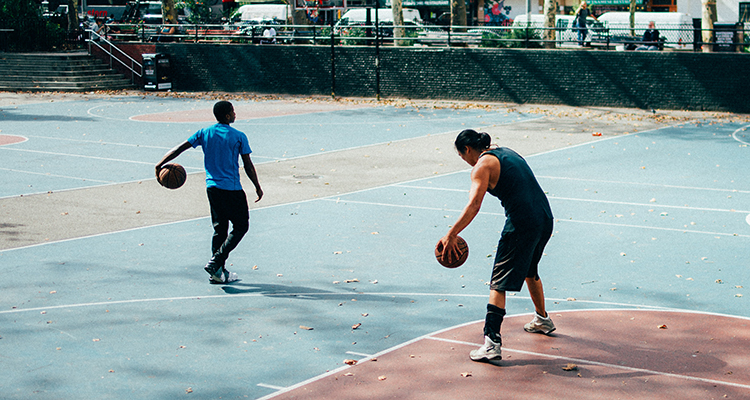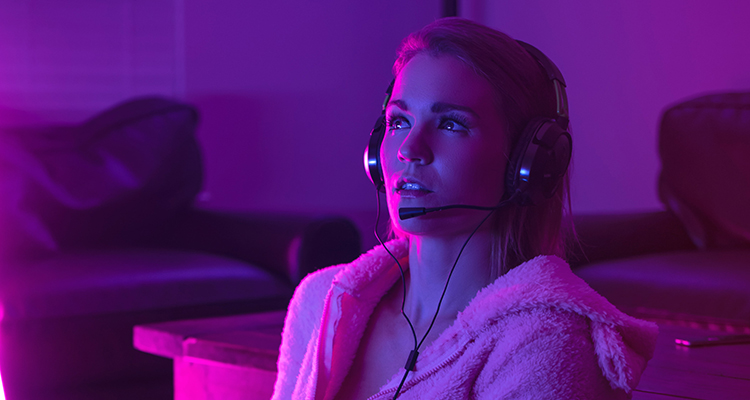Solving Reddits Most Common Video Game Addiction Problems
It is no surprise that many gamers spend the majority of their time on the internet. However, those who wish to cut down or quit playing video games, use it to seek out help from useful resources such as Reddit. In this article, we want to give back by providing some solutions and answers to many of the common problems faced by gamers in the video game addiction Reddit community. Most of the solutions we have provided come directly from our course and are the knowledge and guidance we offer to all of our users.

Content
How do I know that I am a gaming addict?
Many that have come as far as to question whether they are playing too much video games, will usually find that they are addicted in some way shape or form. The difference between behavioural addictions and substances is that they can vary in severity by a very wide margin. Hence diagnosis is really dependant on the honesty and integrity of the individual. It is not uncommon for video game addiction to be noticed by loved ones before it is brought to the gamers attention.
So here is a list of some of the red flags and behavioural symptoms that are big indicators of video game addiction:
- Only leaving gaming to eat or use the bathroom, potentially missing meals
- Losing the concept of time, numerous hours passing without realising whilst playing
- Ignoring family and friends, neglecting loved ones or partners to continue gaming
- Disrupting professional relationships or grades in school, neglecting professional obligations of the day
- Obsessive thinking about gaming, taking part in important activities or moments but still find yourself thinking about the games you play
- Feeling irritable when cutting down on games, mood swings and agitation without it
- Escapism, playing video games to avoid problems, anxiety, depression or stress
- Lying to conceal gaming habits
The DSM-5 explains that these symptoms must cause significant impairment or distress in multiple areas of an individuals life to qualify as a diagnosis. So, if you are suffering from some of these symptoms then it may be time to evaluate the impact that they are having on your life if any at all. Do you find that relationships have deteriorated because of gaming? Have you been neglecting your health and hygiene because of your gaming habits? Does gaming dictate your mood for the day? Ultimately if gaming is damaging your quality of life then some changes may be in order. By definition, behavioural addictions like gaming addiction are maladaptive and persistent. So if the behaviour is damaging to us yet we continue to perform it then we are likely dealing with video game addiction.
Most people that play video games are often very intelligent. So gaming may not put their life on hold. However, it can be a hindrance to their productivity and potential if they feel they are worth more. So here at The Mindful Gamer, we always believe that a person’s reason for wanting to quit or cut down is entirely their decision, and does not need to be justified to anyone else.
Everything else feels so boring except gaming
This is a common and totally expected sensation after quitting or cutting down on video games so do not feel alone. One thing to understand, to hopefully put your mind at ease is that it will go away in time. Your brain at its most addicted state was receiving high levels of dopamine release when you played video games. This is a feel-good neurotransmitter associated with the reward centre of your brain that caused your addiction. As you probably know, video games are full of small rewards and the satisfaction of winning comes from that very chemical. The problem is, how you’re feeling is due to desensitisation of your brain to dopamine. You have overloaded your brain with long repetitive gaming sessions that have caused your brain to need more dopamine to feel the same level of satisfaction hence your addiction.

By abruptly cutting out gaming and consequently your dopamine requirement you will feel some of the withdrawal symptoms: Anxious, Depressed, Irritable/Agitated while not gaming, Lowers our attention span and interest in things not gaming-related. Most importantly in this instance Numbed pleasure response, everyday pleasures no longer satisfy us. Hyper-reactivity to gaming, everything is boring but gaming. However don’t let this scare you, our brains are amazing organs and can recover completely if you put in the work over time.
So how do we solve this feeling? By completing a detoxification programme. In other words, keep doing what you are doing. Take an extended break from video games altogether. By not playing, you are giving your brain the time it needs to restore but also giving yourself perspective. You may not remember what it was like to live life without gaming so having this comparison after detoxification can help you find what is right for you. Moreover, fill your free time with productive activities. Regardless of if they are fun or not these actions will be beneficial and add value to your life as you recover.
As for the other withdrawal symptoms, it’s best to treat these symptomatically. If you are feeling anxious, depressed, or presented with a racing mind we strongly recommend mindfulness practices. For those unfamiliar, mindfulness is a psychological technique that attempts to help the individual become unconditionally aware and accepting of everything that happens in the present moment. It teaches us to ground ourselves and focus on the “now” during uncomfortable emotions and sensations. Mindfulness is clinically proven to help those suffering from anxiety and other conditions and is regularly incorporated into courses of CBT during therapy. Addicts who practice mindfulness also show greater long term stability and a significantly decreased frequency of relapse.
Mindfulness can be practiced through guided meditation, being talked through the meditation. Or by yourself. It can also be achieved through various mindfulness exercises such as focusing on breathing, attention to the process of eating and many more. In The Mindful Gamer program, we have hundreds of guided meditations and relaxation sounds to practice becoming present and reduce the effect of your addictive symptoms.
I can’t make up for lost time spent gaming

When overcoming video game addiction a common problem that gamers run into is the idea of lost time and the guilt that comes with it. Recovering gaming addicts are often found stating things like “If only I used my time wisely and didn’t spend it gaming.” “I could have achieved this if I didn’t spend all that time gaming”. The first problem with this line of reasoning is that it leads to rumination. Dwelling on the problem, if you will. This ultimately gives people a reason to relapse. The second problem with this line of reasoning is that it is not true. The idea that the time we invested into video games keeps us playing them, is called the sunk cost fallacy. This is a cognitive bias that explains it difficult for us to “lose” something of value because once upon a time, primitive human beings were hunter-gatherers and loss meant life or death. However, video games have a tendency to play on the sunken cost fallacy. For instance, having invested long hours into video games, our brain now sees this behaviour as valuable to us. Something we need for our “survival”. As we know, this is not the case. We do not actually need gaming for survival nor does playing more add inherent value.
These investments may not only be temporal, they can be monetary as well. Your brain makes you believe that all that money and time will have gone to waste if we do not continue playing video games. The problem with this cognitive bias; is that when we feel like playing video games we are reminded of these investments. They make us feel emotional and hence make it difficult for us to rationalise decisions. Even though you want to quit playing video games your emotional state makes it hard for you to be in the moment and aware of this. The idea of sunken cost at that point just seems logical so you begin to play video games again.
Similarly, we are also influenced by one more cognitive bias – Loss aversion, a psychological tendency to avoid loss, rather than acquire gains. Tell us if this sounds familiar. “I have such a good account, I can’t just stop playing or give it away!” “It took me forever to reach this rank, If I don’t keep playing I will lose it”. These rationalisations that we use to keep us playing are based on not losing, rather than actually making progress. The good news is, you aren’t actually losing anything and it’s not your fault for experiencing them.
One solution to these problems is to change the way we look at the situation. A good way to look at this, is the time and money put into gaming are not going to come back. No matter how much we play in order to maintain or increase their value, it has no actual effects on the money or time that was initially invested. We need to see it as resources that were spent on a chapter that we are no longer on. Similar to someone making a large investment in clothing, but time passes and it no longer fits them. It would be ridiculous to then wear clothes that are far too small in an attempt to save or increase the value of what they spent. The logical solution would be to give the clothes away. And not dwell on what once was. By not losing you are also not gaining.
I can’t find meaningful activities or a new passion

One of the effects of playing video games is that they satisfy so many of the needs we have as human beings: They make it so that we see constant measurable growth where we are rewarded and receive instant gratification for progress, providing a temporary escape from stress in our lives, giving us a sense of community and social stimulation and finally a challenge; a sense of purpose in our lives. All of this accessed at a moments notice.
Therefore it is clear to see that one alternative hobby or pass time will not satisfy all of these aspects in real life. Rather our solution is to find multiple alternative activities. One for each of the different types of stimulation they provide.
We recommend:
- Mentally engaging activity – Something that can replace the overstimulation you get from gaming such as learning an instrument, computer programming, a new language or starting an online business. In all of these, we can see personal growth and are better investments of our time.
- Resting activity – This is something low energy that we can do to substitute the times where playing games was a part of our relaxation. Doing things such as reading, drawing, music production or cooking are all great relaxing alternatives.
- Social activity – We may have lost touch with some of our friends by giving up gaming but this is the perfect time to make new ones of similar interests. Joining clubs such as martial arts, rock climbing, dancing or fan meetups allow us to meet people with similar interests and interact with them accordingly just how we used to when gaming.
Finding a new passion doesn’t happen overnight. Being consistent in your routine enough to see the rewards of your efforts, is what builds an opportunity to find a new passion. Attempt other activities with the same determination and vigour that gaming had provoked and you will find interests.
I keep relapsing. How do I prevent this?

On any road to recovery there will be highs, lows and temptations looming. We are not perfect and no one expects perfection. So relapsing happens. But what can we do to learn and grow from our mistakes? The golden rule is to hold yourself accountable. Accepting that we made a mistake is not encouraging it. When we relapse we should look at what lead to it in the first place:
- Was it due to additional stresses, responsibilities from work/studying or anxiety? Then maybe it’s a sign that you aren’t practicing mindfulness or need to do more meditations
- Was it due to boredom? Maybe you need to change or add activities you engage in. Remember just carrying out other activities gives the opportunity to build a new passion. Don’t deprive yourself of that opportunity
- Were you tempted by friends or exposed to gaming content? Then consider temporarily using alternative social media with friends as well as blocking gaming-related content. There are a large number of sites and applications to block and limit unwanted content
Coming off the back of a gaming relapse can be very demotivating so it’s important for us to identify where we went wrong and gain some momentum back.
Secondly, don’t be embarrassed about your addiction. Recovery and addiction can make people feel very lonely, but it does not need to be this way. Many cases of relapse are due to a lack of emotional support from friends or family. Having an understanding loved one to share the burden with can really lessen the load. As the recovering gamer, it is your responsibility to reach out for help. Tell those important to you what you are dealing with and create a support network of people around you. Telling your loved ones goes hand in hand with accountability as we all have some level of pride in our actions. Studies have shown that informing people of commitments massively increases the likelihood of following through. Of course, judgment and criticism is a reality of expressing anything. So if anyone around you shows negativity towards your recovery journey, do not be disheartened. It simply helps us to identify who we can turn to and who we can’t.
Finally, set yourself goals. Create realistic goals in quitting or cutting down. Create goals on lifestyle changes you would like to make. Create goals about things you would like to achieve beyond your gaming addiction. Having these goals in place, we can remind ourselves when we feel like relapsing, what we set out to achieve and find the exact motivation we needed. This is also a step in the right direction to determining our values and what is important to us as an individual. Set some goals and write them down on a piece of paper, a notebook, a sticky note, a whiteboard just anywhere you can see it to remind yourself.
How do I quit gaming?
In our articles we outline some most effective video game addiction treatment methods out there, scientifically proven to help you in quitting or cutting down on gaming.
The Mindful Gamer is a course of therapy that incorporates all of the aforementioned treatments, and many more in the form of audio lessons. These audio lessons outline CBT, ACT and Mindfulness practices that would be delivered by a therapist right at your fingertips. The Mindful Gamer is always here to help if you or any of your loved ones are affected by video game addiction.








